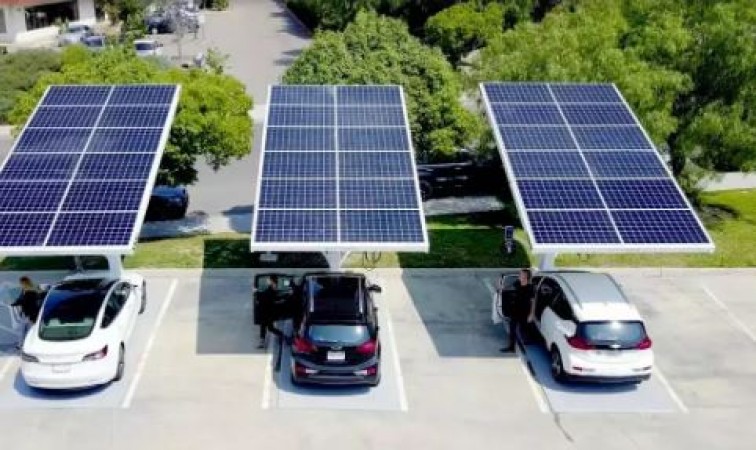
Electric vehicles (EVs) have emerged as a promising solution to combat climate change and reduce dependence on fossil fuels. One intriguing possibility is the integration of solar power to charge these vehicles, offering a sustainable and renewable energy solution. Let's delve into the feasibility and intricacies of charging electric cars with solar power.
Understanding Solar-Powered Charging
How Does Solar Charging Work for EVs?
Solar charging for electric cars involves utilizing photovoltaic (PV) panels to convert sunlight into electricity. These panels are typically installed on rooftops or in open spaces where they can capture maximum sunlight. The electricity generated is then stored in batteries or directly used to charge the EV's battery.
Components of a Solar Charging System
A solar charging system for electric vehicles comprises several key components:
Solar Panels: These are the primary components responsible for converting sunlight into electricity. They consist of interconnected solar cells made of semiconductor materials.
Charge Controller: This device regulates the flow of electricity from the solar panels to the batteries, ensuring efficient charging and preventing overcharging.
Battery Storage: Solar energy generated during the day is stored in batteries for later use, such as charging the electric vehicle overnight or during periods of low sunlight.
Inverter: The inverter converts the direct current (DC) electricity generated by the solar panels into alternating current (AC) electricity, which is compatible with most electric vehicles and household appliances.
EV Charging Station: This is where the electric vehicle connects to the solar-powered charging system to replenish its battery.
Types of Solar Charging Systems
There are primarily two types of solar charging systems for electric vehicles:
Grid-Tied Systems: These systems are connected to the electrical grid, allowing excess solar energy to be fed back into the grid for credit or compensation. They can also draw electricity from the grid when solar generation is insufficient.
Off-Grid Systems: Off-grid systems operate independently of the electrical grid and rely solely on solar power and battery storage. They are suitable for remote locations or areas with unreliable grid infrastructure.
Advantages of Solar-Powered Charging
Environmental Benefits
Reduced Carbon Emissions: By harnessing clean, renewable solar energy, solar-powered charging helps reduce greenhouse gas emissions associated with traditional fossil fuel-powered vehicles.
Resource Conservation: Solar power is abundant and inexhaustible, unlike finite fossil fuel reserves. By tapping into solar energy, we can preserve non-renewable resources for future generations.
Cost Savings
Lower Energy Costs: While the initial investment in solar panels and infrastructure may be higher, solar-powered charging can lead to long-term savings on energy costs, as sunlight is free and abundant.
Incentives and Rebates: Many governments and utilities offer incentives, tax credits, and rebates to encourage the adoption of solar energy systems, further reducing the cost of implementation.
Challenges and Considerations
Intermittent Nature of Solar Energy
Dependence on Sunlight: Solar power generation is dependent on sunlight, making it intermittent and variable. Cloud cover, time of day, and seasonal changes can affect solar panel performance and charging efficiency.
Battery Storage Limitations: While battery storage allows for energy to be stored and used when sunlight is not available, current battery technology has limitations in terms of capacity, efficiency, and lifespan.
Infrastructure and Compatibility
Charging Infrastructure: The widespread adoption of solar-powered charging for electric vehicles requires the development of adequate charging infrastructure, including solar-powered charging stations and compatible EV models.
Vehicle Range and Efficiency: The range and efficiency of electric vehicles can impact the feasibility and practicality of solar-powered charging. High-efficiency vehicles with longer ranges can maximize the benefits of solar energy.
The integration of solar power into electric vehicle charging holds immense potential to reduce carbon emissions, promote energy independence, and drive sustainable transportation solutions. While there are challenges to overcome, advancements in solar technology, battery storage, and EV infrastructure are making solar-powered charging increasingly viable and attractive.
Indian Airlines Expand Fleets Amid Rising Air Travel Demand
These beautiful villages of India will fascinate you, here is the complete list